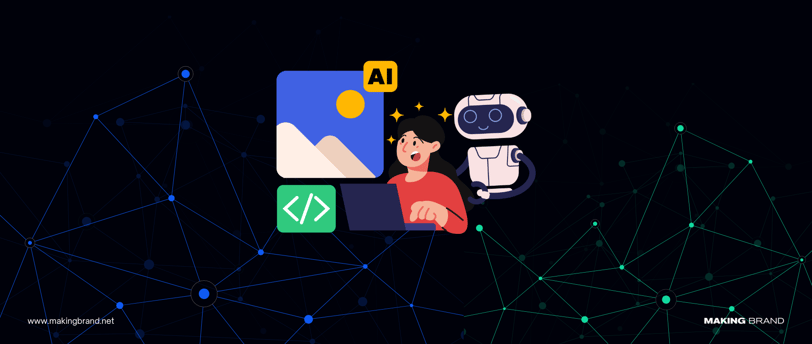Should Have AI Tools for Tech Businesses in 2025
3 min read


1. AI-Powered Automation Tools
Automation is essential for scaling operations and reducing manual workloads. AI-driven automation tools go beyond simple task management by learning from patterns and optimizing workflows.
Top Tools:
UiPath: Ideal for robotic process automation (RPA), UiPath automates repetitive tasks like data entry, invoice processing, and customer onboarding.
Zapier AI: This enhanced version of Zapier integrates AI to create smarter workflows, automatically adapting to changes in processes.
Monday AI Workflows: Helps teams automate project management tasks, ensuring seamless collaboration and timely delivery.
Why It’s a Should-Have:
Automation tools free up your team to focus on strategic tasks, boosting productivity and reducing errors.
2. AI for Data Analysis and Insights
Data is the lifeblood of tech businesses, but raw data is only useful when transformed into actionable insights. AI-powered analytics tools can process massive datasets, identify trends, and make accurate predictions.
Top Tools:
Tableau with Einstein AI: Combines Tableau’s visualization capabilities with Salesforce’s Einstein AI for predictive analytics and dynamic dashboards.
Google BigQuery ML: Enables businesses to build and deploy machine learning models directly within their data warehouse.
Looker AI: Provides in-depth business intelligence with advanced machine learning capabilities to analyze customer behavior and market trends.
Why It’s a Should-Have:
AI analytics tools help businesses make data-driven decisions, reduce risks, and identify growth opportunities faster than traditional methods.
3. Customer Service AI Tools
Exceptional customer service is a key differentiator in the tech industry. AI-powered customer service tools ensure round-the-clock support, personalized experiences, and efficient issue resolution.
Top Tools:
ChatGPT Enterprise: Delivers conversational AI for customer interactions, internal queries, and knowledge management.
Zendesk AI: Automates ticket management and provides intelligent insights to improve customer satisfaction.
LivePerson AI: Combines conversational AI with human-like chatbots to deliver personalized customer support at scale.
Why It’s a Should-Have:
These tools enhance customer engagement, reduce response times, and improve satisfaction rates while lowering operational costs.
4. AI for Cybersecurity
As cyber threats grow more sophisticated, tech businesses must prioritize security. AI-powered cybersecurity tools detect and neutralize threats in real-time, ensuring data integrity and customer trust.
Top Tools:
Darktrace: Uses AI to identify unusual behavior in networks and prevent cyberattacks.
CrowdStrike Falcon: Provides endpoint protection with AI-driven threat intelligence.
Splunk AI Security: Analyzes security logs and alerts to detect vulnerabilities and mitigate risks.
Why It’s a Should-Have:
AI cybersecurity tools provide proactive protection, safeguarding your business from costly breaches and downtime.
5. AI for Marketing and Sales
Marketing and sales are critical for growth, and AI tools can optimize campaigns, personalize customer outreach, and predict sales trends.
Top Tools:
HubSpot AI: Enhances CRM functionalities with AI-powered lead scoring, email personalization, and campaign optimization.
Marketo Engage AI: Automates marketing campaigns with predictive analytics to maximize ROI.
Gong.io: Analyzes sales conversations to provide actionable insights, helping teams close deals faster.
Why It’s a Should-Have:
AI marketing and sales tools enable you to target the right audience, improve conversion rates, and maximize revenue.
6. AI for Software Development
For tech businesses, staying ahead often means developing innovative software solutions. AI tools for software development can accelerate coding, detect bugs, and even suggest improvements.
Top Tools:
GitHub Copilot: An AI-powered coding assistant that suggests code snippets and speeds up development.
DeepCode: Analyzes your codebase for potential errors and security vulnerabilities.
TabNine: An AI code completion tool compatible with multiple programming languages and IDEs.
Why It’s a Should-Have:
These tools enhance developer productivity, reduce errors, and shorten development cycles, allowing faster product launches.
7. AI for Collaboration and Productivity
Remote and hybrid work models are here to stay, making collaboration tools more important than ever. AI-powered productivity tools streamline communication, project management, and team collaboration.
Top Tools:
Notion AI: Assists in content creation, project planning, and knowledge management with AI-driven insights.
Slack AI: Offers intelligent message prioritization, automated reminders, and real-time translations for global teams.
Trello AI: Adds smart suggestions for task prioritization and deadline tracking.
Why It’s a Should-Have:
AI collaboration tools keep teams aligned, improve efficiency, and ensure seamless communication across time zones.
Conclusion: Embrace AI for a Competitive Edge
In 2025, the tech industry’s leaders will be those who embrace AI not just as a tool but as a strategic enabler. From automation and analytics to customer service and innovation, AI tools offer unparalleled opportunities to optimize operations, drive growth, and stay ahead of the competition.
The key to success lies in choosing the right AI tools that align with your business goals and integrating them seamlessly into your workflows. The future is AI-driven—make sure your tech business is ready to lead the charge.
